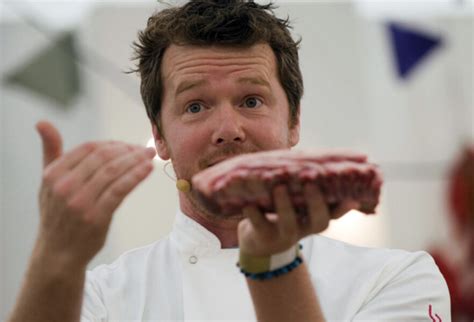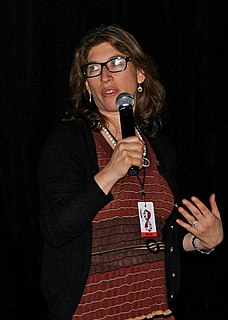A Quote by Arthur Potts Dawson
Supermarkets don't really sustain a community, and they completely remove people from the food chain.
Quote Topics
Related Quotes
Everything has such order and everyone is so focused on doing what they're doing that no one ever pays attention to you spinning and dancing around supermarkets. It's something you find in places like supermarkets and airports, where everything is really ordered. There's something about those places that makes you feel really anonymous.
All communities, and low-income communities especially because of food insecurity and lack of access to healthy foods, need more farmers markets, need more community gardens and urban farms. It would be great if people living in communities had the tools and resources to grow food in their own backyard - community-based food systems.
Peace is not just the absence of war, it is the active presence of a capacity for love and compassion, and reciprocity. It is an awareness that our lives are not to be lived simply for ourselves through expressing our individuality, but we confirm the purpose of our lives through the work of expressing our shared sense of community in a purposeful and practical way; to sustain our own lives we sustain the lives of others - in family, in a community of neighborhoods called a city, and in a community of nations called the world.
When we spoke about workplaces in 1972 we mainly were referring to old-line manufacturing firms, on the one hand, and Main St. shops and restaurants, on the other. Both of those categories are now insignificant in terms of employment. Today, the economy is dominated by the rapidly growing Low-Cost Operators - national discount and mall chain stores, fast food franchises and supermarkets - which offer employees low salaries, few benefits and little training.






































